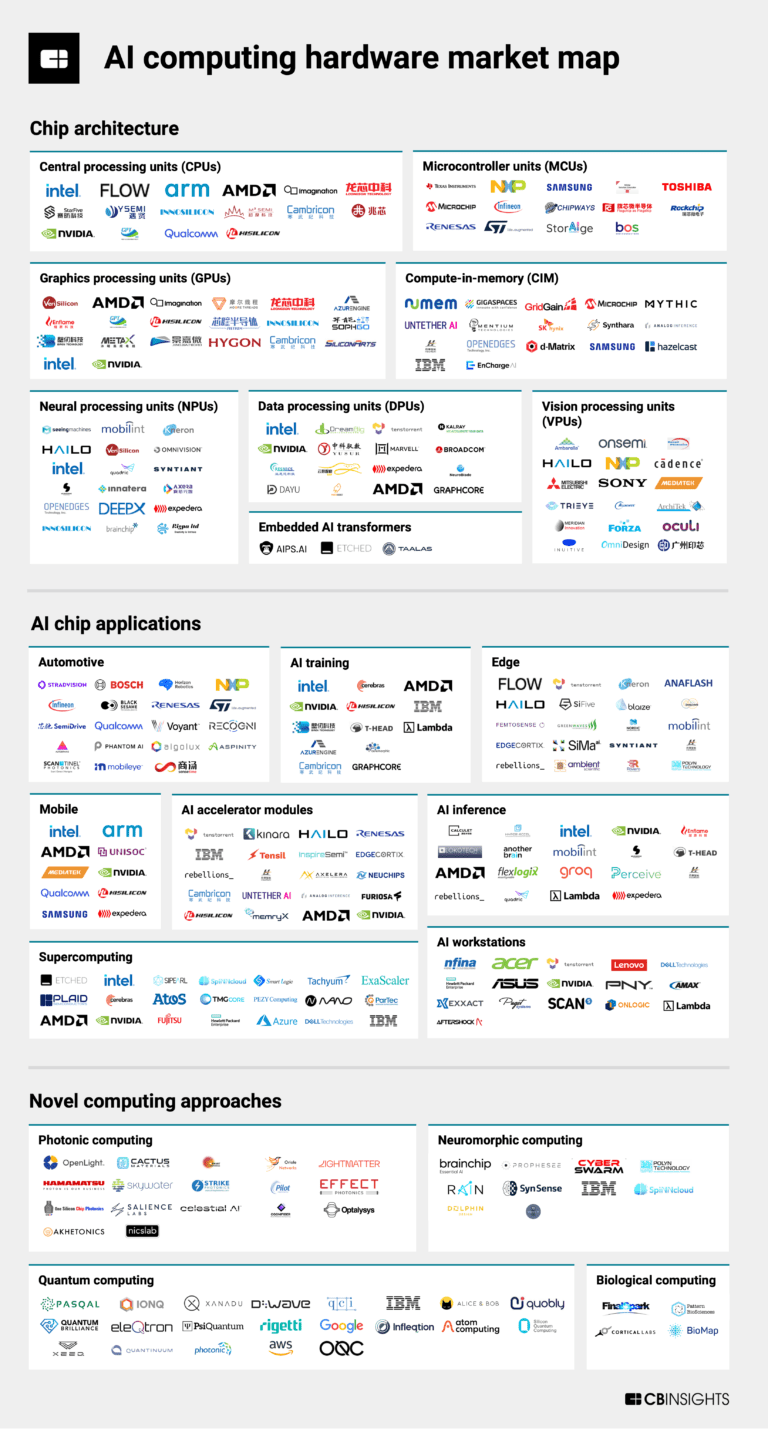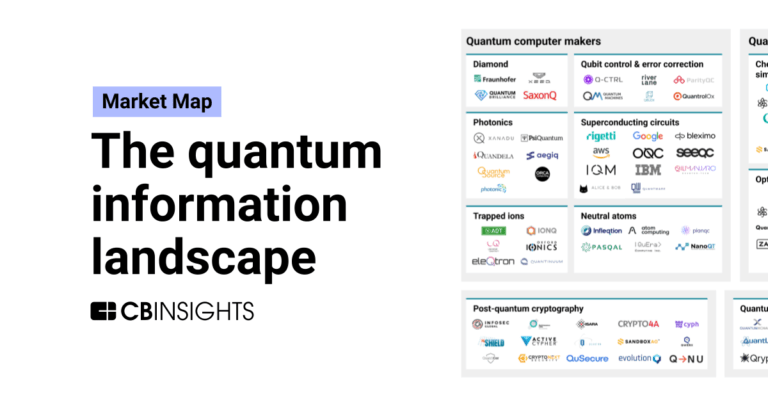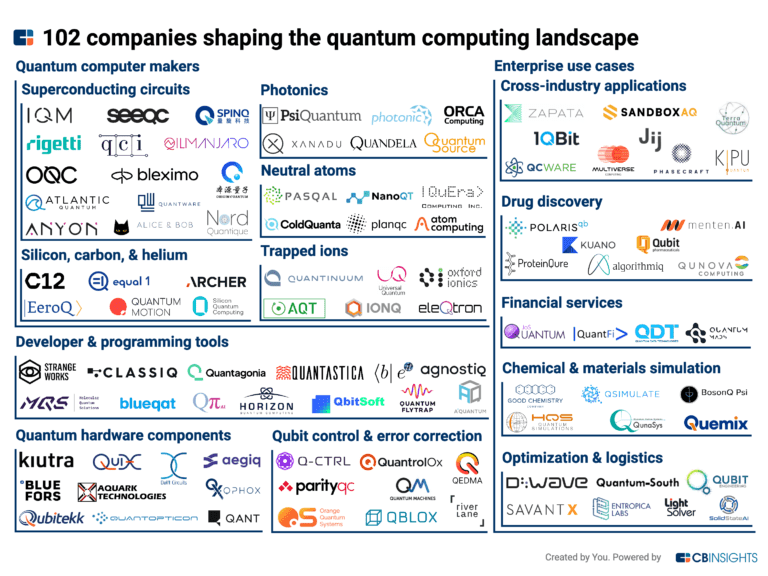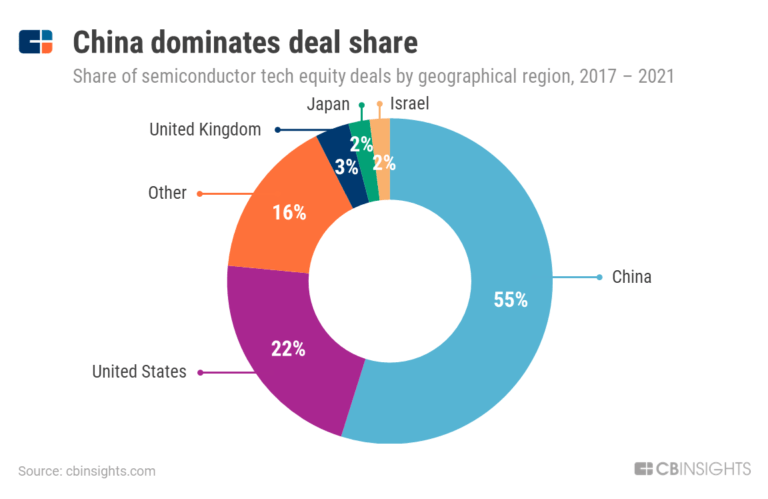
Xanadu
Founded Year
2016Stage
Grant - IV | AliveTotal Raised
$267.08MValuation
$0000Mosaic Score The Mosaic Score is an algorithm that measures the overall financial health and market potential of private companies.
-52 points in the past 30 days
About Xanadu
Xanadu provides a quantum photonic platform. Its platform uses artificial intelligence to integrate quantum silicon photonic chips into existing hardware to build a full-stack quantum computer. It enables clients to receive a quantum technology-based computing facility using a photonic cluster state technology and easily solve business problems. The company was founded in 2016 and is based in Toronto, Canada.
Loading...
ESPs containing Xanadu
The ESP matrix leverages data and analyst insight to identify and rank leading companies in a given technology landscape.
The quantum computer makers — photonics market refers to the segment of the quantum computing industry that focuses on using light's quantum properties to build quantum processors. Proponents of this approach say it offers a quick way to scale up the number of qubits available — a rough proxy for overall quantum computing power and commercial usefulness.
Xanadu named as Leader among 7 other companies, including PsiQuantum, Photonic, and ORCA Computing.
Loading...
Research containing Xanadu
Get data-driven expert analysis from the CB Insights Intelligence Unit.
CB Insights Intelligence Analysts have mentioned Xanadu in 6 CB Insights research briefs, most recently on Sep 13, 2024.

Sep 13, 2024
The AI computing hardware market mapExpert Collections containing Xanadu
Expert Collections are analyst-curated lists that highlight the companies you need to know in the most important technology spaces.
Xanadu is included in 8 Expert Collections, including Quantum Tech.
Quantum Tech
603 items
This Expert Collection contains private and recently exited companies working on quantum computing, quantum communication, post-quantum cryptography, quantum sensors, and other quantum tech.
Unicorns- Billion Dollar Startups
1,257 items
Game Changers 2018
36 items
Our selected startups are high-momentum companies pioneering technology with the potential to transform society and economies for the better.
Artificial Intelligence
9,386 items
Companies developing artificial intelligence solutions, including cross-industry applications, industry-specific products, and AI infrastructure solutions.
AI 100
200 items
The winners of the 4th annual CB Insights AI 100.
Conference Exhibitors
5,302 items
Xanadu Patents
Xanadu has filed 41 patents.
The 3 most popular patent topics include:
- quantum mechanics
- quantum information science
- quantum computing

Application Date | Grant Date | Title | Related Topics | Status |
|---|---|---|---|---|
9/29/2020 | 11/12/2024 | Quantum information science, Quantum mechanics, Linear algebra, Computer memory, Quantum computing | Grant |
Application Date | 9/29/2020 |
|---|---|
Grant Date | 11/12/2024 |
Title | |
Related Topics | Quantum information science, Quantum mechanics, Linear algebra, Computer memory, Quantum computing |
Status | Grant |
Latest Xanadu News
Jan 16, 2025
News provided by Share this article Canadian non-profit Open Quantum Design, working to democratize quantum computing, accelerate research, fuel industry WATERLOO, ON, Jan. 16, 2025 /CNW/ - Amidst the global race to establish and deploy useful and powerful quantum computers, researchers at a newly incorporated, Waterloo-based non-profit are taking a different approach. The team at Open Quantum Design (OQD) believes the key to accelerating advancements in quantum computing - including developing top talent - is to democratize access and open up its intellectual property for anyone willing to collaborate; and its four partners agree. Quantum heavy-hitters Xanadu, the University of Waterloo, the Unitary Foundation, and Haiqu are the first to join OQD's innovative platform to spearhead a new, unprecedented degree of open access to full-stack quantum computing technology. Open Quantum Design, world's first open-source quantum computer producer, partners with quantum heavy hitters. Founded by world-renowned researchers out of the University of Waterloo, Roger Melko, Crystal Senko, and Rajibul Islam, alongside entrepreneur Greg Dick, Open Quantum Design is working to accelerate quantum research by democratizing quantum computing - breaking down the traditional barriers between academia and industry. Their team is working to accomplish this by opening up both the hardware and software intellectual property for its trapped-ion quantum computer—the first of its kind—to collaborators looking to participate in a global quantum sandbox. In an early testament to OQD's work, Xanadu, the University of Waterloo, Unitary Foundation, and Haiqu have all formally signed on to participate in OQD's open-source platform, enabling unfettered access to quality quantum computing hardware, software, and up-to-date training opportunities that will accelerate innovation and develop the future quantum workforce. More about OQD's founding partners: Xanadu is a Canadian quantum computing company with the mission to build quantum computers that are useful and available to people everywhere. Founded in 2016, Xanadu has become one of the world's leading quantum hardware and software companies, and is paving the way towards the next generation of quantum technologies. University of Waterloo is a leading global innovation hub driving economic and social prosperity for Canada and the world. A leader in scientific research, it is home to the pioneering Institute for Quantum Computing , and Faculty of Science . Unitary Foundation is a non-profit working to create a robust quantum technology ecosystem and represents the gold standard in open-source community development. Haiqu is a start-up headquartered in San Francisco and is pushing the limits of modern quantum computing, enabling quantum applications using breakthroughs in quantum circuit execution. By opting into OQD's value proposition and open-source community, these organizations gain access to the trapped-ion quantum computer repositories, including hardware specifications and fabrication standards, as well as design forums for quantum research and development. By removing traditional barriers and focusing on solutions to hard problems, OQD's highly collaborative approach is well-positioned to speed-up innovation by pooling global quantum expertise. "Our open-source approach means that everything in the quantum computer will be accessible to the user, from the bare metal technical design to application programming interfaces," says Roger Melko, Co-founder of OQD, and faculty member at the University of Waterloo and the Perimeter Institute for Theoretical Physics. "We have found a way to leverage the collective global quantum workforce to scale quantum computing," explains Greg Dick, OQD's CEO. "By sharing resources, knowledge, and designs as a global community, we will accelerate the development of quantum technologies because what we are providing is an open platform to scale progress rapidly where people work, build, and innovate together." To learn more about OQD's open-source quantum computer and community, visit www.openquantumdesign.org . SOURCE Open Quantum Design
Xanadu Frequently Asked Questions (FAQ)
When was Xanadu founded?
Xanadu was founded in 2016.
Where is Xanadu's headquarters?
Xanadu's headquarters is located at 777 Bay Street, Toronto.
What is Xanadu's latest funding round?
Xanadu's latest funding round is Grant - IV.
How much did Xanadu raise?
Xanadu raised a total of $267.08M.
Who are the investors of Xanadu?
Investors of Xanadu include Innovate UK, National Research Council of Canada Industrial Research Assistance, FedDev Ontario’s Regional Quantum Initiative, Government of Canada, Georgian and 21 more.
Who are Xanadu's competitors?
Competitors of Xanadu include Lightmatter, Quantum Source, QuiX Quantum, Pasqal, PsiQuantum and 7 more.
Loading...
Compare Xanadu to Competitors

PsiQuantum is a quantum computing company that focuses on developing a commercially useful quantum computer for various sectors. The company's main offering is a photonics-based quantum computer architecture designed for fault tolerance and scalability, utilizing conventional silicon chip foundries for manufacturing. PsiQuantum's technology aims to provide concrete solutions to complex computational problems in industries such as climate tech, energy, pharma, defense, and financial services. It was founded in 2015 and is based in Palo Alto, California.

ORCA Computing specializes in the development of full-stack photonic quantum computers, focusing on the technology sector and quantum computing industry. The company offers modular, fiber-interconnected quantum computing systems designed to enhance performance, scalability, and usability for applications such as machine learning and optimization. ORCA primarily serves government and enterprise clients, guiding them from the discovery to deployment of quantum applications. It was founded in 2019 and is based in London, United Kingdom.

Aegiq specializes in quantum computing and quantum networking within the technology sector. The company offers a range of products including compact photonic quantum computers, quantum network interconnects, and quantum cryptographic communications, all utilizing integrated photonics for practical quantum applications. It primarily serves sectors such as telecommunications, defense and aerospace, financial, and advanced manufacturing. The company was founded in 2019 and is based in Sheffield, United Kingdom.

QuiX Quantum specializes in photonic quantum computing and operates in the quantum computing hardware sector. The company offers photonic quantum computing solutions that utilize light particles for information processing, and its products include a universal quantum computer, a special-purpose quantum computer, and a quantum photonic processor. It primarily serves the supercomputer industry. The company was founded in 2019 and is based in Enschede, Netherlands.

Photonic specializes in quantum computing and networking technologies within the quantum technology sector. The company's main offerings include a quantum computing platform that utilizes the memory and computing capabilities of spins and the connectivity of photonics, industry-specific quantum algorithms, and quantum networking services. Photonic's technology primarily serves governments, academia, and corporations across various industries seeking to harness the power of quantum computing. It was founded in 2016 and is based in Coquitlam, Canada.

Q.ANT specializes in industrial quantum technology and photonics solutions in native computing and sensing. The company offers products for artificial intelligence processing through photonic computing and provides sensing capabilities for applications. Q.ANT's technology aims to improve energy efficiency in data centers and enable human-machine interfaces. It was founded in 2018 and is based in Stuttgart, Germany.
Loading...


